When it comes to arranging the transportation of goods, understanding the shipping quote is essential for smooth logistics. A well-crafted shipping quote agreement not only clarifies costs but also sets expectations for delivery timelines and service levels, ensuring everyone is on the same page. It's that moment when you can confidently assess your options and make informed decisions that best serve your needs. Curious to dive deeper into crafting the perfect shipping quote agreement? Read on!

Detailed shipping terms and conditions.
Detailed shipping terms and conditions outline the legal framework and operational procedures critical for the transportation of goods. Shipping parties must agree on key elements such as freight charges, including base rates and additional surcharges (like fuel and handling fees). Delivery timelines, usually expressed in days or weeks for domestic and international routes, must be explicitly stated. Accepted payment methods can encompass credit card transactions, electronic funds transfers, or payment upon delivery. Liability clauses determine accountability for loss or damage during transit, often addressing limits based on the declared value of the goods. Furthermore, provisions for customs clearance (especially for international shipments) outline the responsibilities of both shipper and consignee to comply with regulations set by government bodies such as the U.S. Customs and Border Protection. Finally, dispute resolution procedures are essential, defining arbitration or mediation processes for addressing conflicts arising from the shipping agreement.
Pricing breakdown and cost components.
Shipping quotes typically encompass several cost components that contribute to the final pricing breakdown. The base freight charges represent the fundamental cost of transporting goods over a specified distance, often calculated by weight and dimensions. Additional surcharges may apply, such as fuel surcharges, which reflect fluctuations in fuel prices, typically ranging from 10% to 30%. Services like customs clearance fees incur extra expenses during international shipments, often amounting to hundreds of dollars. Insurance costs, usually around 1% to 2% of the total declared value of the goods, safeguard against potential losses. Storage fees may apply for items held at a warehouse, generally calculated by the cubic foot per day. Lastly, accessorial charges, including loading or unloading services, can vary greatly based on the complexity of handling specific items. Each of these components plays a crucial role in determining the overall shipping quote.
Delivery timelines and schedule.
Shipping agreements often detail crucial aspects, including delivery timelines and schedules that are vital for logistics operations. Typically, delivery timelines outline expected arrival dates, which can vary depending on factors such as distance, urgency, and mode of transport--whether by air, sea, or land. For instance, standard shipping might promise delivery within 5 to 7 business days for domestic routes, while international shipments may take 10 to 14 days. Additionally, a detailed schedule highlights specific milestones, including pickup times, transit days, and any buffer for delays due to customs inspections or weather events. Clear communication regarding these elements reduces misunderstandings and ensures timely fulfillment of shipping commitments.
Responsibilities and liabilities.
Shipping agreements encompass critical responsibilities and liabilities that both parties must understand clearly. The shipping company assumes responsibility for the safe transport of goods, ensuring compliance with regulations, including International Maritime Organization (IMO) standards for maritime shipments and the Federal Aviation Administration (FAA) guidelines for air freight. Shippers bear the liability for any packaging and labeling errors, which can lead to delays or damage during transit. Liability limits are often defined by the Carrier's Act, with monetary limits based on weight or shipment value, such as $1,500 per package for many domestic carriers. Moreover, customs compliance is essential; the shipper must provide accurate documentation (such as Commercial Invoices and Certificates of Origin) to avoid penalties or shipment delays. In the event of loss or damage, a claims process is initiated, requiring timely submission of evidence and appropriate documentation within specified time frames, often ranging from 9 to 180 days, depending on the carrier's policy. Careful negotiation and understanding of these responsibilities mitigate risks and enhance the overall shipping experience.
Contact information for queries or disputes.
In shipping agreements, accurate contact information is essential for effective communication regarding queries or disputes. Primary contact names should include individuals from the logistics department, typically the shipping manager or coordinator, along with their phone numbers (preferably direct lines) and email addresses. Additionally, a secondary contact should be listed, such as a customer service representative, to ensure continuity in case of unavailability. The physical address of the company's logistics office, including city and postal code, adds another layer of reliable communication. Establishing clear lines of contact fosters transparency and expedites resolution processes should any issues arise during shipping operations, enhancing overall client satisfaction.

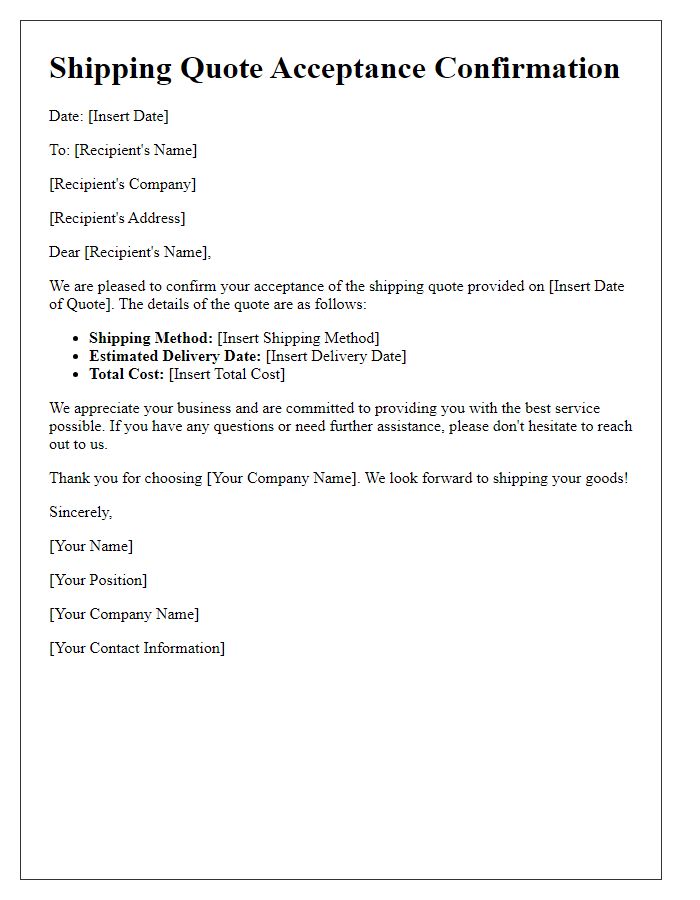

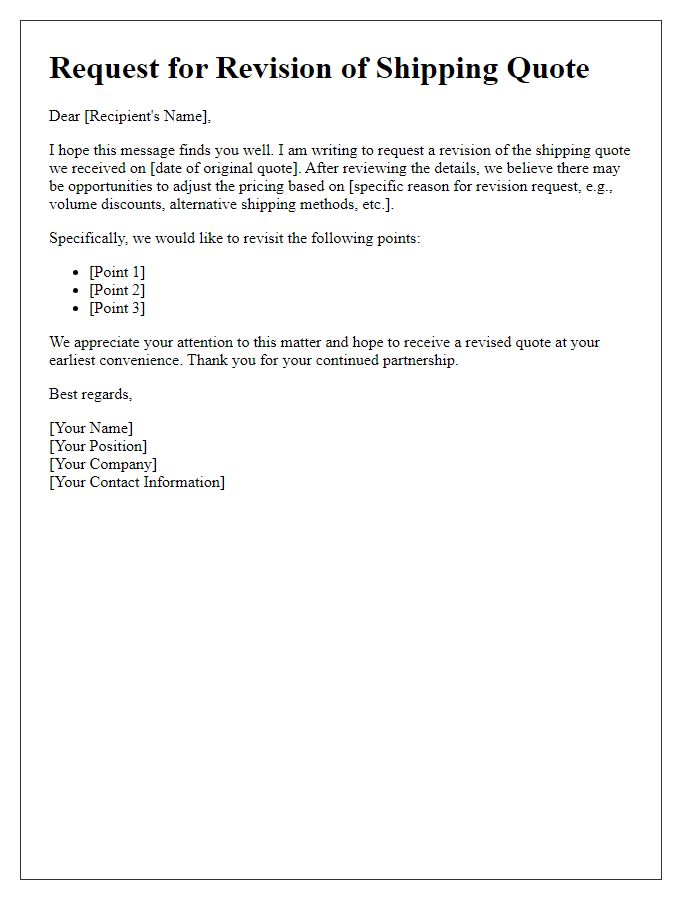
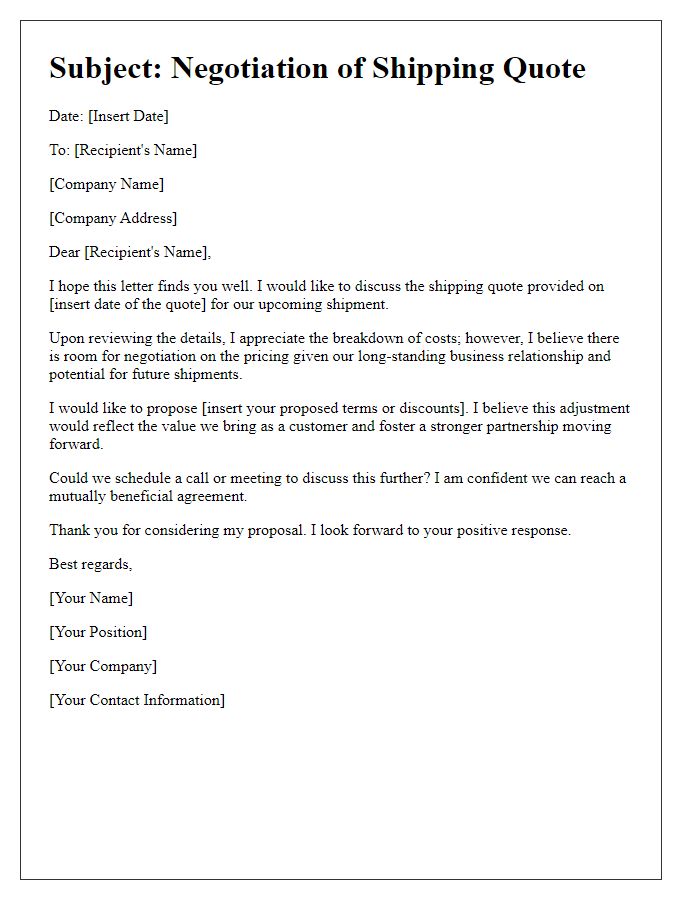
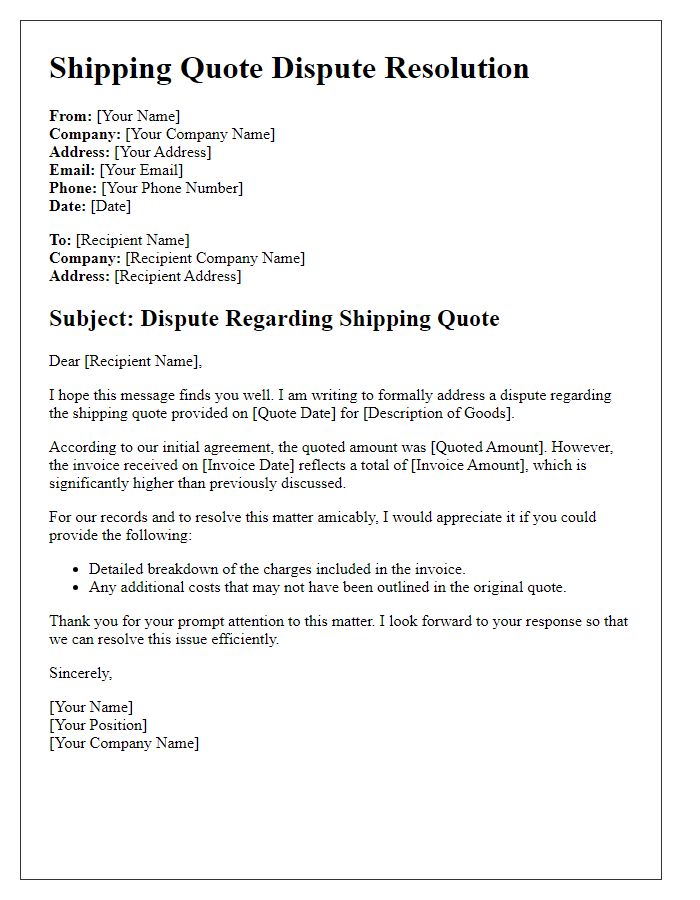
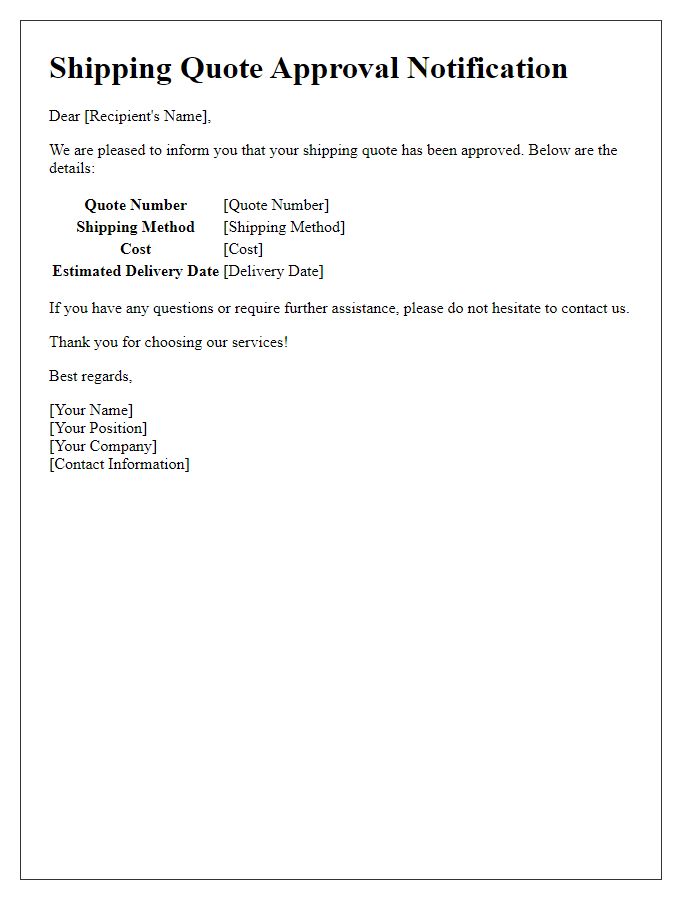
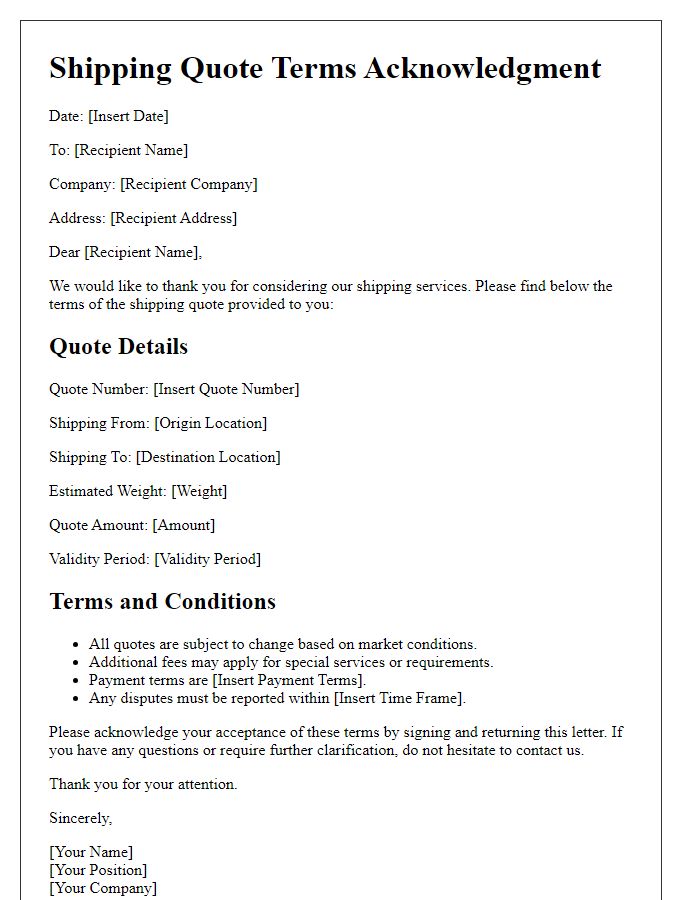
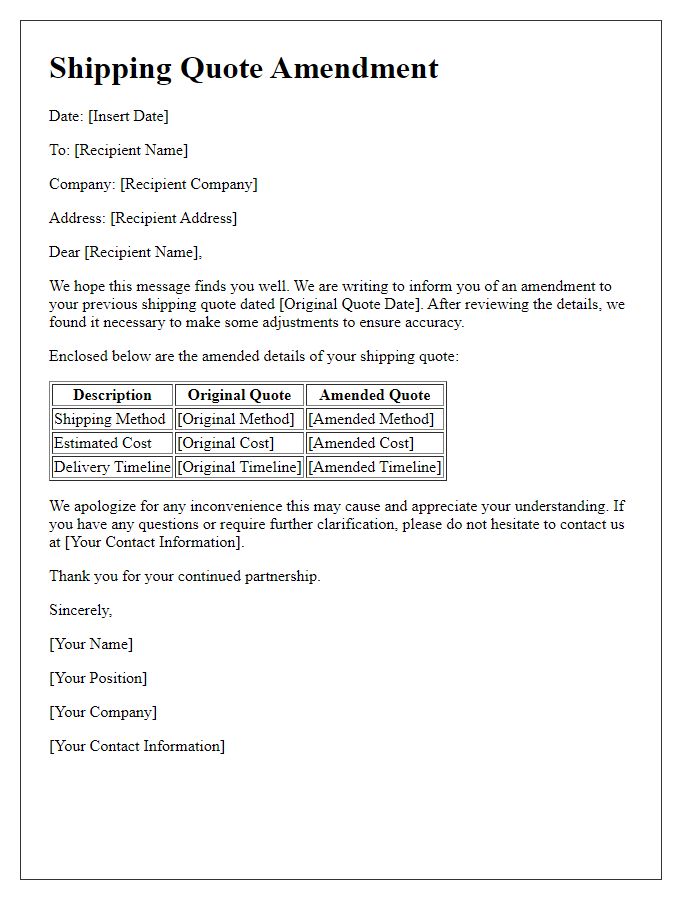
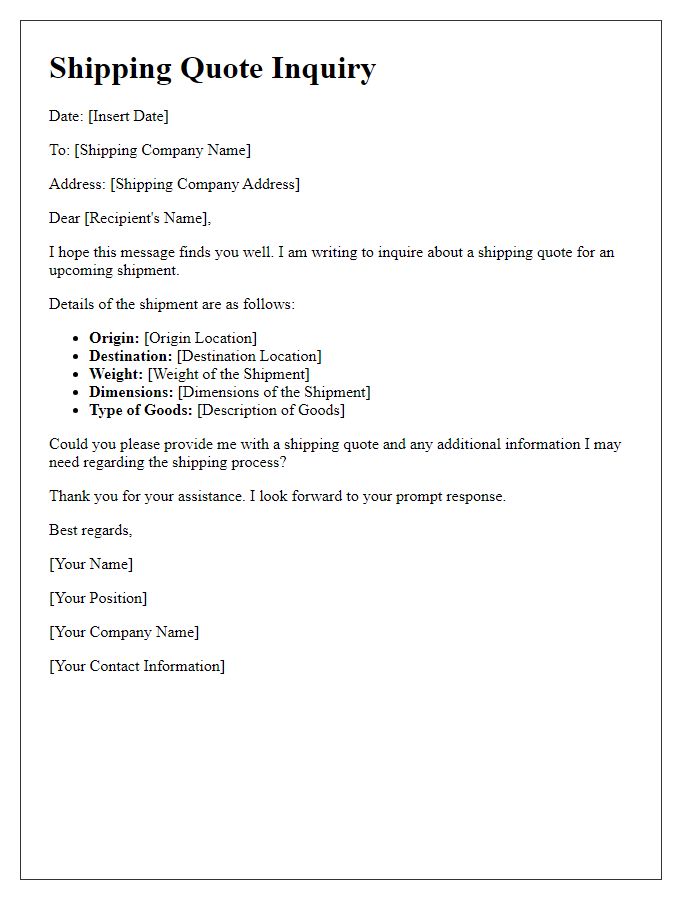
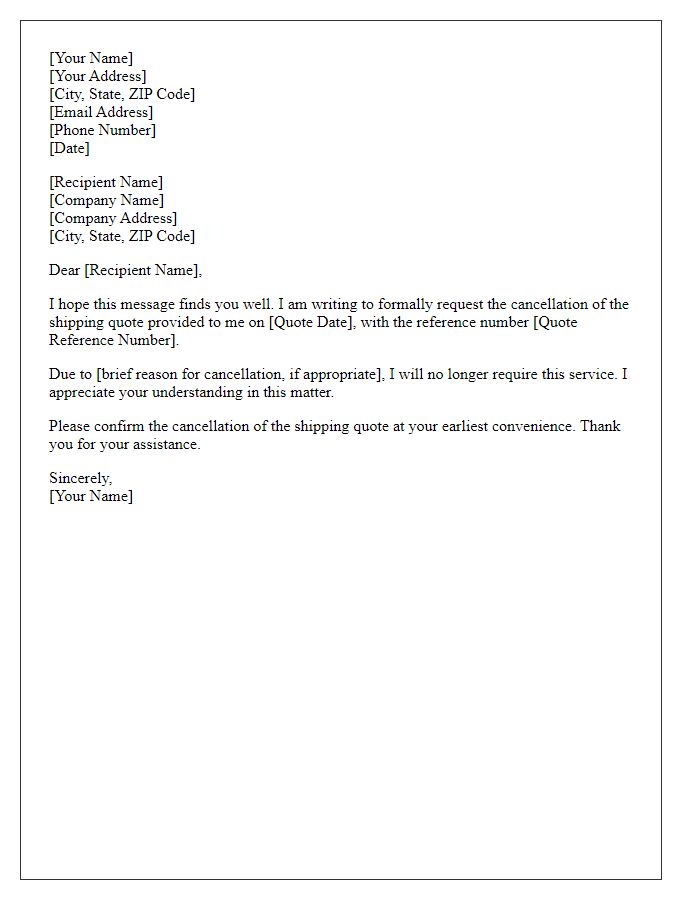


Comments